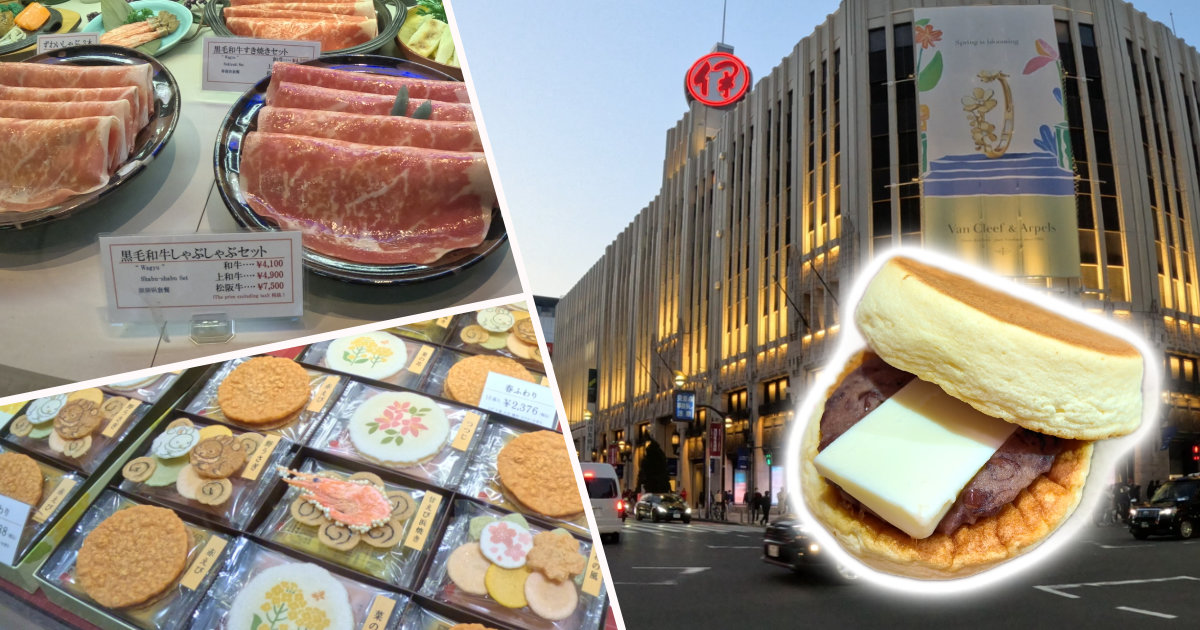summary
Emma leads us to the basement of Isetan Department Store in Shinjuku, Tokyo, known as “Depa-underground”, a food paradise with a wide variety of gourmet stores. Here, you will find a wide variety of products, including carefully selected ingredients from around the world, the finest Japanese beef, beautifully handmade Japanese sweets, traditional pickles, and Japanese kitchen knives. Wagyu beef marbling is especially beautiful to the eye and is characterized by its tenderness and juiciness. Also deeply explored are the various types of Japanese tea and their respective health benefits, as well as the different regional characteristics and production methods of pickles.
The food section of the Depa basement is loved by many domestic and foreign visitors as a place where they can experience the depth and delicacy of Japanese food culture. Japanese delicacies, Western-style confectionery, and Japanese sweets of various designs and flavors are a reminder of the craftsmanship and traditions of the country. Emma will introduce these foods and explain how each ingredient has been incorporated into the Japanese diet and is inextricably linked to the lives of the Japanese people. Visitors will enjoy discovering new tastes and cultures in this Depa basement expedition.
Information on spots around this time
Isetan Shinjuku
Isetan Shinjuku is one of the most attractive department stores in Tokyo. Its blend of tradition and modern style makes it a must-see for visitors to Japan. Located just a few minutes’ walk from Shinjuku Station, access is extremely convenient. The store offers a wide variety of products, from the latest fashion brands to traditional Japanese crafts. High quality kimonos, ceramics, and unique gastronomic products are especially popular as items that give visitors a sense of Japanese culture.
Isetan is also known for its outstanding customer service, with many foreign language speaking staff on hand to assist tourists in making their shopping experience more enjoyable. The food section is a gourmet treasure trove, offering a selection of the finest foods from all over Japan, as well as rare sweets and regional specialties that can only be found here.
A visit to Isetan is the perfect opportunity to experience the sophisticated Japanese lifestyle. It is loved by many visitors not only for shopping, but also as a place where you can experience the depth of Japanese culture. We hope you will spend a special time at Shinjuku Isetan.
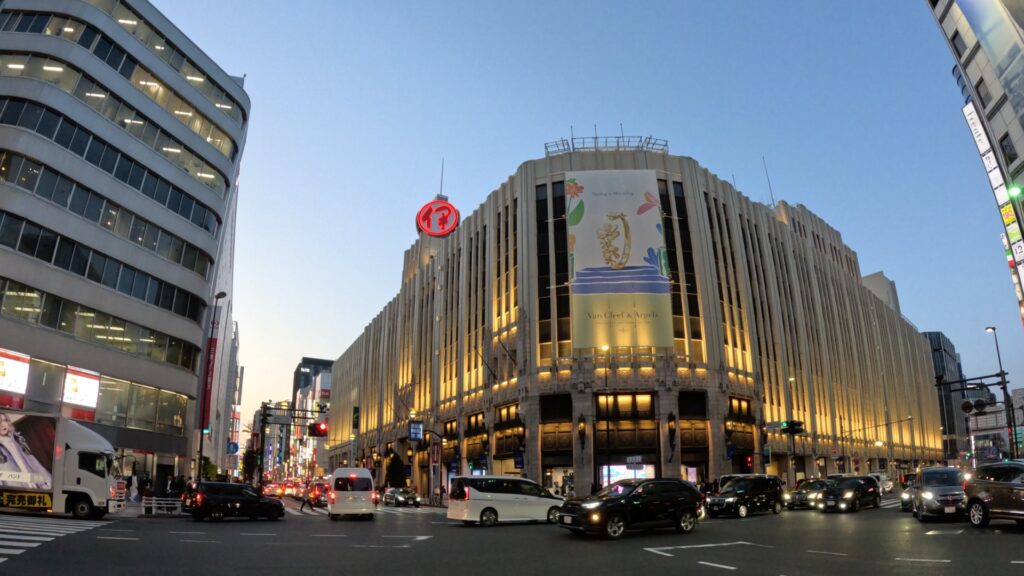
Shinjuku Suehiro-tei
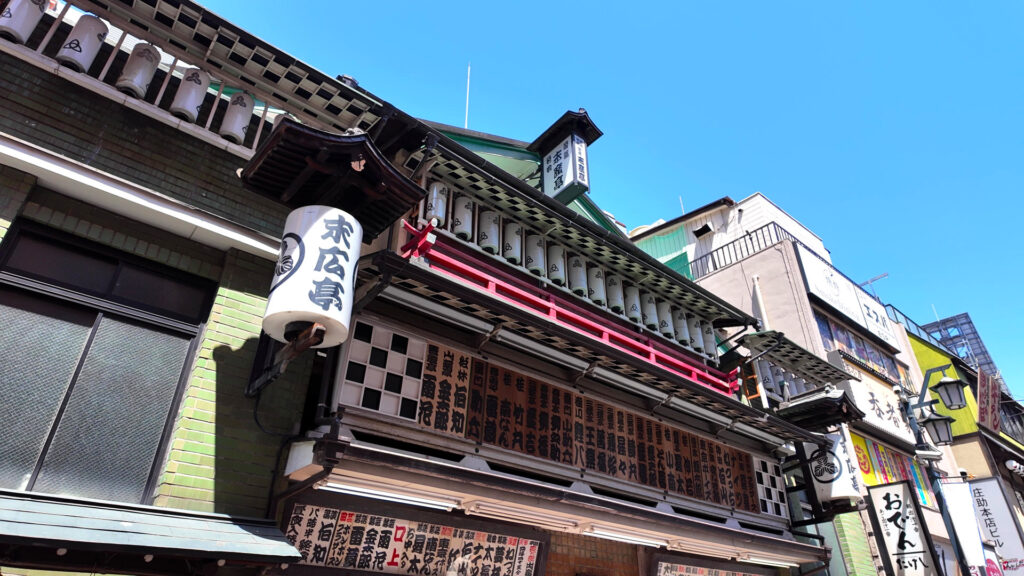
Emma leads us to the basement of Isetan Department Store in Shinjuku, Tokyo, known as “Depa-underground”, a food paradise with a wide variety of gourmet stores. Here, you will find a wide variety of products, including carefully selected ingredients from around the world, the finest Japanese beef, beautifully handmade Japanese sweets, traditional pickles, and Japanese kitchen knives. Wagyu beef marbling is especially beautiful to the eye and is characterized by its tenderness and juiciness. Also deeply explored are the various types of Japanese tea and their respective health benefits, as well as the different regional characteristics and production methods of pickles.
The food section of the Depa basement is loved by many domestic and foreign visitors as a place where they can experience the depth and delicacy of Japanese food culture. Japanese delicacies, Western-style confectionery, and Japanese sweets of various designs and flavors are a reminder of the craftsmanship and traditions of the country. Emma will introduce these foods and explain how each ingredient has been incorporated into the Japanese diet and is inextricably linked to the lives of the Japanese people. Visitors will enjoy discovering new tastes and cultures in this Depa basement expedition!
Shinjuku Gyoen
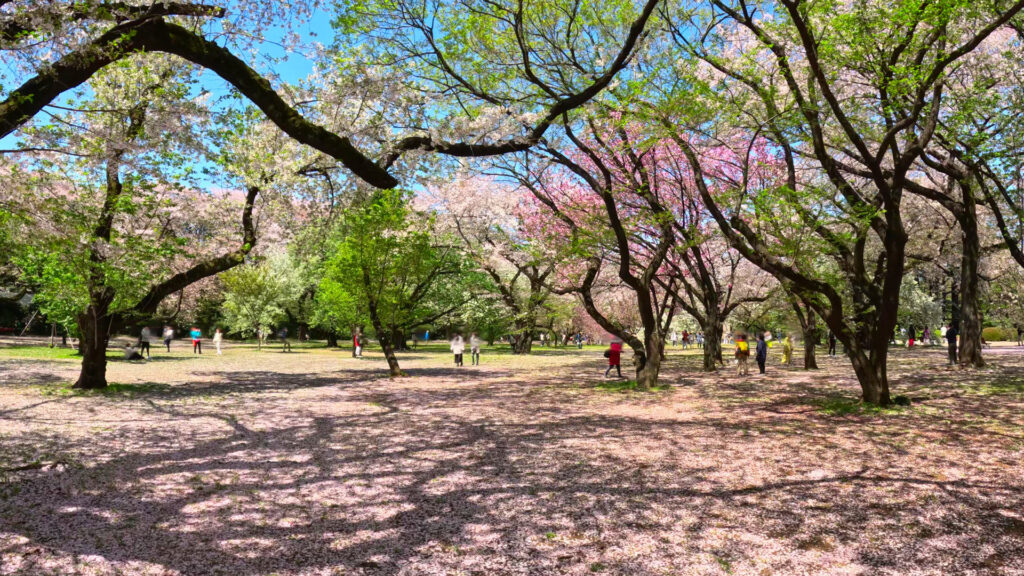
Shinjuku Gyoen is an oasis of nature away from the hustle and bustle of Tokyo. Originally a daimyo’s garden in the Edo period, it later became an imperial garden. Three different styles of gardens are located in the park: a Japanese-style garden, a French-style garden, and an English landscape garden. The beautiful flowers and old trees in each season attract visitors. The beauty of the garden is especially striking during the cherry blossom season in spring and the autumn foliage season in fall.
The park is vast, with many places for strolling and picnicking, and visitors can enjoy a tranquility that is hard to believe in the heart of the city. In addition, the greenhouse is especially recommended for plant lovers, as tropical plants and rare flowers can be seen throughout the year.
Shinjuku Gyoen is easily accessible from Shinjuku Station, making it an easy stopover between sightseeing tours. It is the perfect place to relax and enjoy Japanese nature and culture. For visitors to Japan, this is a valuable opportunity to enjoy a nature-filled view in the midst of the city.
Neighborhood Gourmet this time
sushi
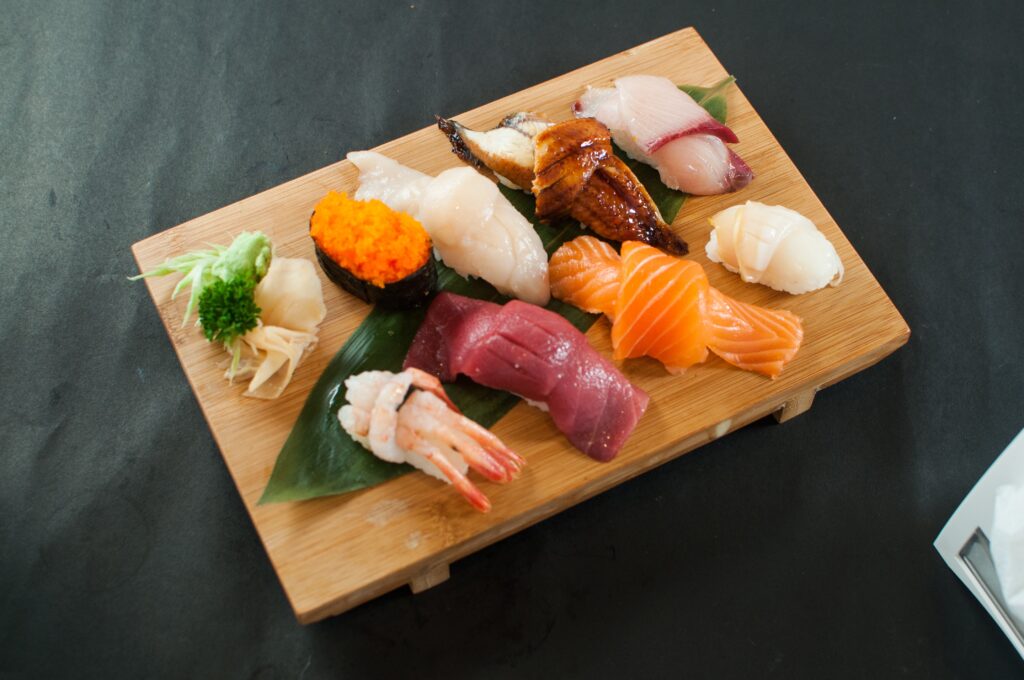
Sushi is a traditional Japanese gastronomic tradition that every foreign visitor to Japan must experience. The freshness of the ingredients and the skill of the sushi chef give this dish a simple yet sophisticated flavor. Sushi is a visually stunning dish, usually consisting of fresh fish or seafood on a bed of rice seasoned with vinegar.
Sushi comes in a variety of forms, but the most popular is nigirizushi. Nigirizushi is made by placing a variety of fish on a bed of hand-formed rice, and is characterized by its bite-size, easy-to-eat texture. Another great attraction of the sushi experience is the opportunity to eat at a sushi bar while watching the craftsmanship firsthand.
There are a wide variety of ways to enjoy sushi. For example, there are “conveyor-belt sushi” restaurants where you can enjoy various types of sushi at reasonable prices, high-end sushi restaurants using luxurious ingredients, and regional sushi restaurants that focus on local ingredients. There are also regional sushi restaurants throughout Japan, each with its own unique characteristics, allowing visitors to taste the culture and history of each region.
Sushi in Japan is a culinary art created by fresh fish cut on the spot and skilled craftsmanship. During your visit to Japan, experience the many different types and styles of sushi and experience the depth of Japanese flavors and culture.
新宿周辺の寿司店
Sushi Kousuke
No.3 Seiko Building B1F, 1-15-8 Nishi-Shinjuku, Shinjuku-ku, Tokyo
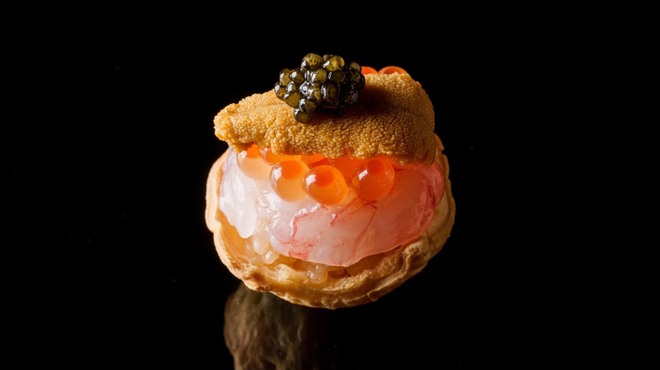
Sushi Ba Nigiri Te
Shinjuku Daikan Plaza Business Kiyota Building 108, 7-9-15 Nishi-Shinjuku, Shinjuku-ku, Tokyo
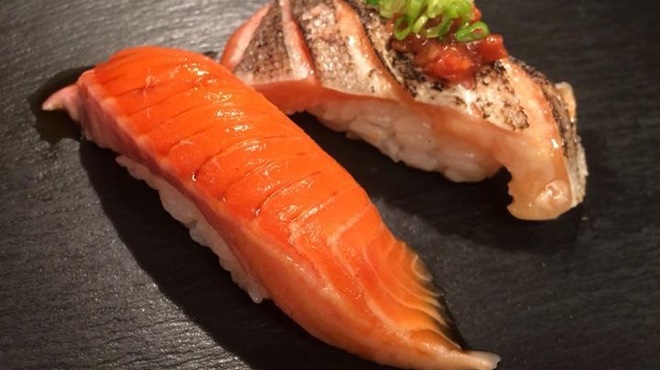
Sushi Kotobuki
Queens NS Building B1F, 1-14-17 Nishi-Shinjuku, Shinjuku-ku, Tokyo
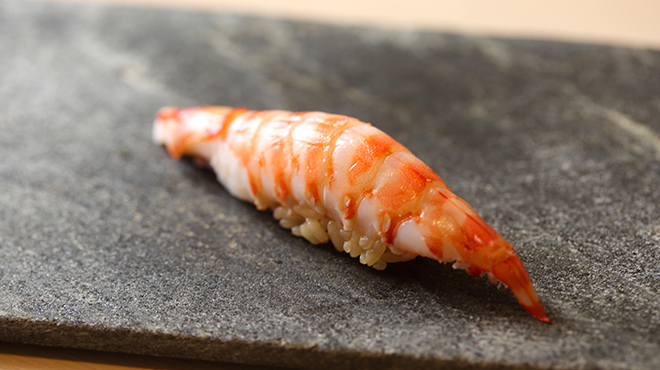
Sushiya Maken
WaMall Kabukicho 6F, 1-18-9 Kabukicho, Shinjuku-ku, Tokyo
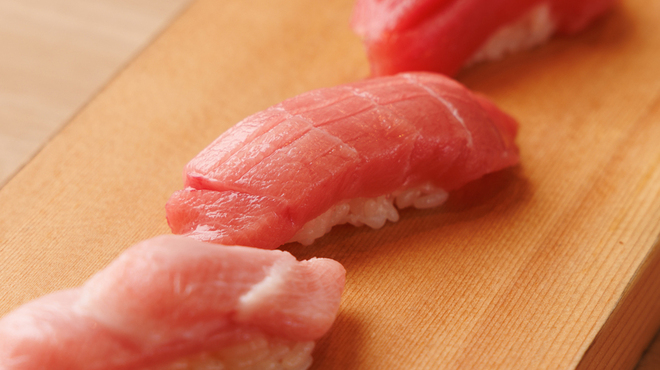
Sushi Oumi
Ishikawa Building 4F, 7-9-13 Nishi-Shinjuku, Shinjuku-ku, Tokyo
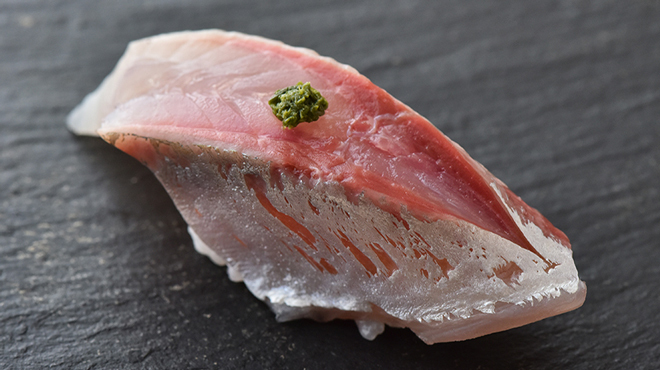
Kidunasushi
Daiichi Monami Building 1F and B1F, 1-18-8 Kabukicho, Shinjuku-ku, Tokyo
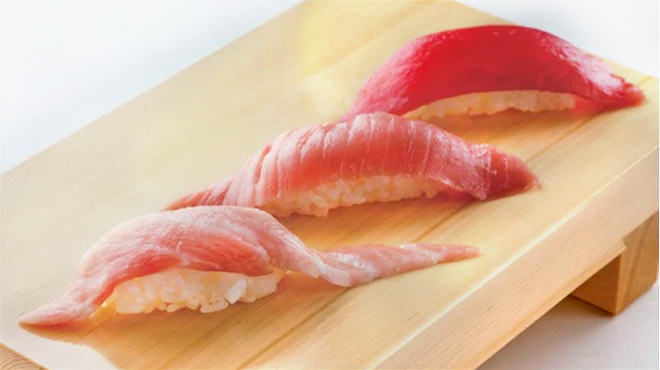
Otaru Masazushi
Shinjuku Takashimaya 14F, 5-24-2 Sendagaya, Shibuya-ku, Tokyo
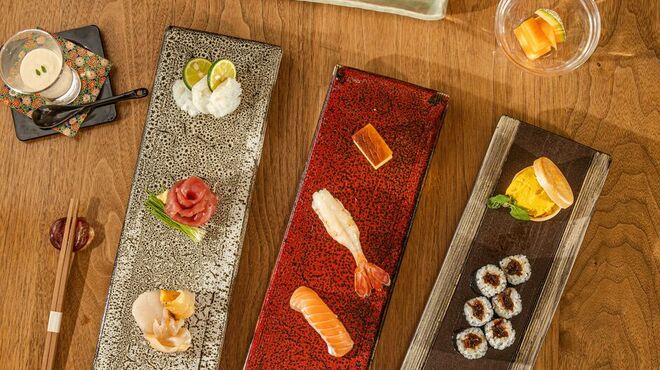
Steak/Yakiniku
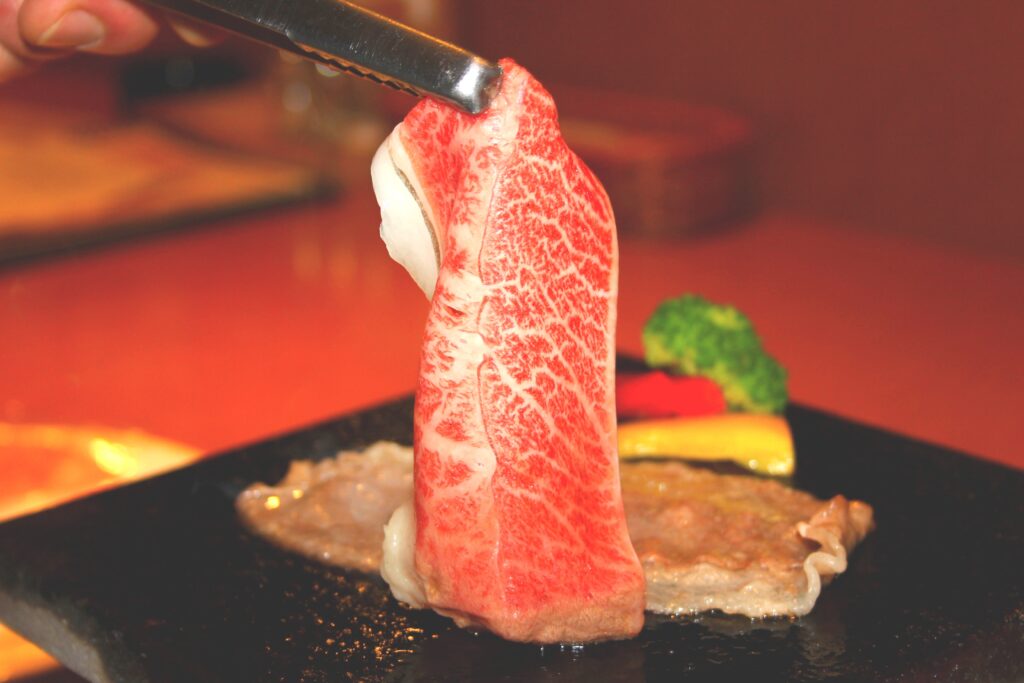
Japanese steak and yakiniku are two of the must-try gourmet experiences for visitors to Japan. Within Japan, fine wagyu beef is especially famous, and its tenderness and taste are highly regarded around the world. Notably, each region has its own brand of beef to be proud of, such as Kobe beef and Matsusaka beef, each of which can be enjoyed for its unique breeding method and meat quality.
For steaks, chefs cook the meat at extremely high temperatures to achieve a crispy outside and moist inside, enhancing the original flavor of Wagyu beef. Yakiniku, on the other hand, is a style of eating in which diners grill various meats and vegetables themselves on the spot, allowing them to enjoy conversation with their close friends while enjoying their own personal grilling style.
Yakiniku also allows you to enjoy variations of flavors with special sauce, salt, and a variety of condiments. This way of eating offers an enjoyable dining experience with an emphasis on communication, which is one of the most important aspects of Japanese food culture.
Tasting these meat dishes on a trip to Japan is much more than just a meal. By experiencing the high quality of the meat and the unique food culture, you will gain a deeper appreciation of Japanese taste and hospitality.
Steak & Yakiniku Restaurant
USHIGORO S.
HULIC & New SHINJUKU 11F, 3-17-10 Shinjuku, Shinjuku-ku, Tokyo
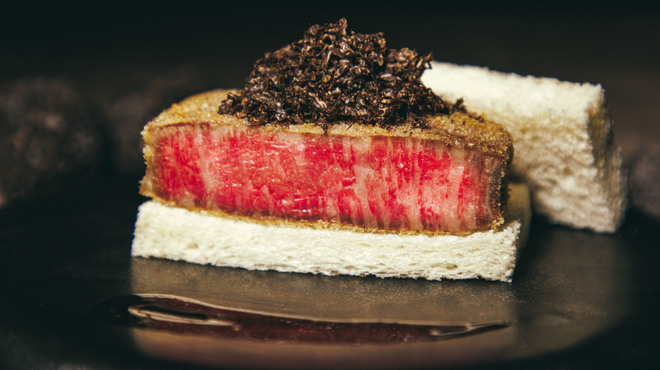
Yakiniku Ushigoro
HULIC &New SHINJUKU 12F, 3-17-10 Shinjuku, Shinjuku-ku, Tokyo
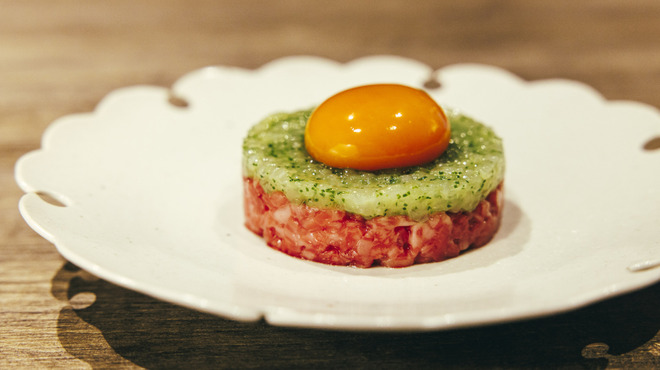
Yakiniku Oonuki
2-18-1 Shinjuku, Shinjuku-ku, Tokyo
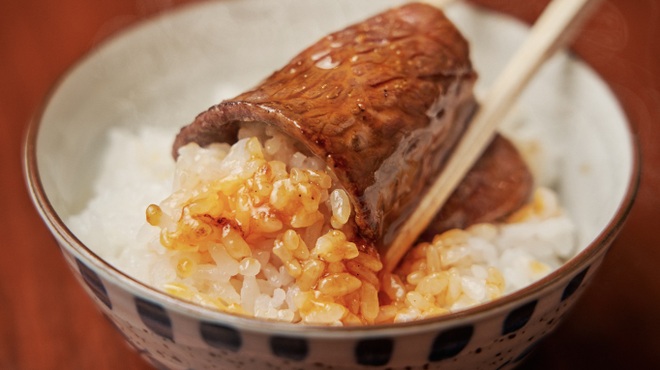
Yakiniku Ushijirushi
Shinjuku Daikan Plaza A, 2F, 7-1-7 Nishi-Shinjuku, Shinjuku-ku, Tokyo
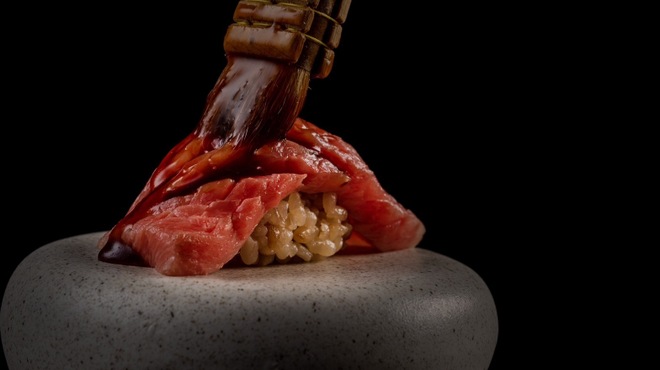
Pandora
Nishishin Building 2F, 1-13-3 Nishishinjuku, Shinjuku-ku, Tokyo
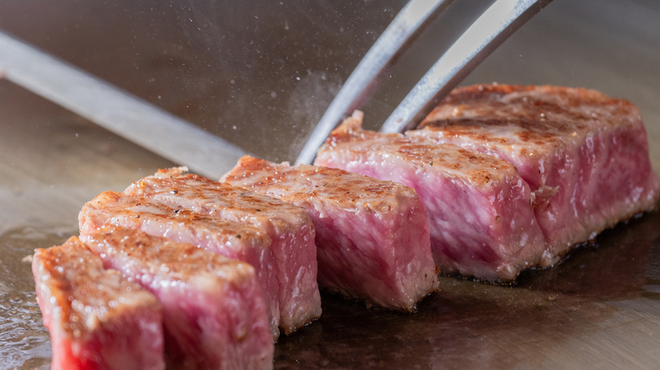
Shabushabu Niimura
Kawashin Building 1F B1F, 1-14-3 Kabukicho, Shinjuku-ku, Tokyo
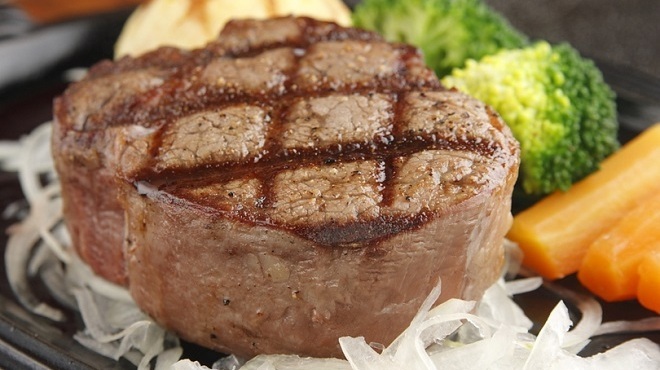
Yakiniku Washino
Dian Shinjuku Building 4F, 3-11-11 Shinjuku, Shinjuku-ku, Tokyo
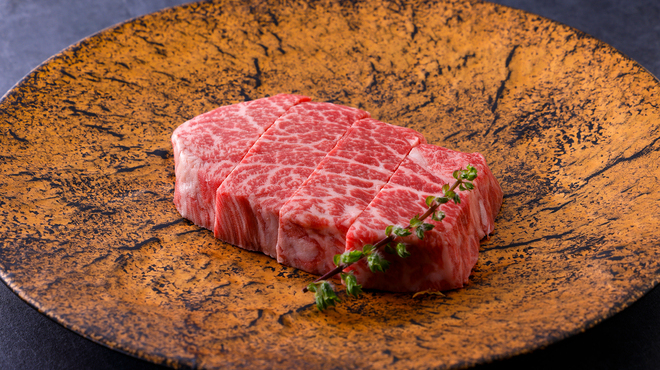
寿司&ステーキ・焼肉新宿MAP
Related recommended sites for this issue
East Japan Railway Company
It provides train schedules, route information, and reservation services in multiple languages for trains operating mainly in the Kanto region. The site provides a wealth of information for foreign travelers and is useful for getting around the Tokyo metropolitan area and the Tohoku region. This site is an important resource to support rail travel in Japan.

Tokyo Metro
It provides information on subway lines, timetables, and fares in multiple languages, mainly in central Tokyo. With an extensive section for foreign travelers, it is a useful tool for smooth travel within Tokyo.

Japan Transit Planner
It is possible to search nationwide train and air routes (operation times, fares, and travel times) as well as to grasp detailed information such as ticket prices, IC card fares, and express fares in English.

Related recommended apps for this issue
Japan Wi-Fi auto-connect
Automatic connection anytime!
Once registered, there is no need to log in, and no need to operate at Wi-Fi spots! This is a free Wi-Fi application that automatically connects throughout Japan.
Power saving & crisp, lightweight operation for a comfortable Internet environment.
Of course, it is free.

